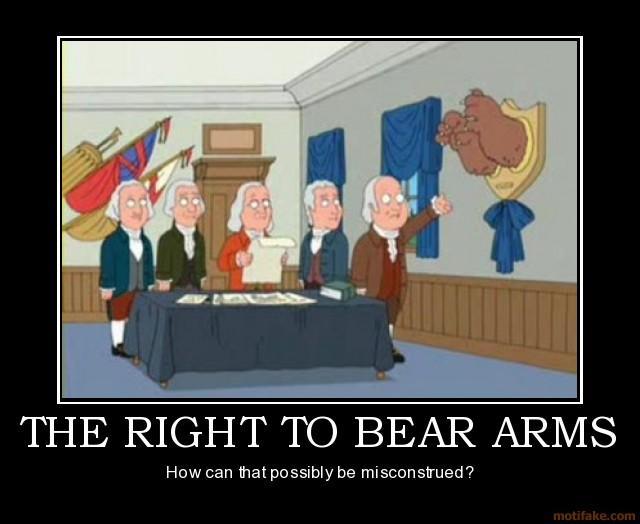What’s Missing From The Dialogue Surrounding Gun Control?
By:
Last week, Attn reported on the role TV news plays in perpetuating gun violence. The article explained how detailed recaps of mass shootings accompanied by voyeuristic investigations of the shooters lives are repeated over and over on 24/7 news cycles, thus ensuring that a maximum number of viewers are exposed to such violent, sensational influence. In a country with roughly as many guns as there are people, forensic psychologist Dr. Park Dietz's observation that "intense saturation of coverage" often leads to one or two more shootings within a week seems (almost) like common sense.
Writing for the Guardian in February of this year, Ana Marie Cox observed that "mass shootings have been the one reliable catalyst for a presidential push on our nation's uniquely liberal firearm laws" in spite of the fact that, in 2013, the United States lost thirty people a day to gun violence. The vast majority of these deaths were not a result of theatrical mass shootings carried out by psychotic individuals; they were suicides. In 2010, for example, six of every ten firearm deaths were self inflicted, and more than half of all suicides were gun deaths.
While the saying “guns don't kill people, people kill people” may contain a small grain of truth, one look at the data will show you that guns make killing a hell of a lot easier.
The anti-gun argument outlined here appears air tight, its got data, reason and popular opinion to back it up. And yet these types of arguments have done very little in the way of bridge building between concerned liberals and America’s thriving gun culture.

So how are we supposed to work with a culture that contains such vitriolic currents of thought as those coming from the NRA and other related organizations?
There are no easy answers, that much is clear, but in my own experience arguing about gun control with firearm owners, I've noticed that the tense recital of evidence is accompanied by an incredible, often overwhelming emotional reality that has very little to do with the facts.
What are those facts? These are some of my favorites: homicide rates are higher in areas with high rates of gun ownership, suicide rates are much higher in states with large gun owning populations (which in case you aren't convinced, check out this piece from the New Yorker) , most massacres are carried out with legally purchased weapons and sweeping reform actually does work (when Australia bought bought back some 650,000 automatic and semi-automatic weapons after a tragic massacre in Port Arthur, they witnessed a fifty-nine percent drop in gun homicides). If you take for granted that human life is something worth preserving then its hard to wage a logical argument against the numbers presented here. And if you avoid that line of thinking with the classic comeback about how "more people die in car accidents" then you may be surprised to hear that 14 states and the District of Columbia actually have more gun deaths than car related deaths. I'll close this bout of fact bashing with the one that gets me the most: America is home to 5% of the world's population and roughly 45% of the worlds civilian owned guns, or, in other words, we are better armed than war torn countries like Syria, Afghanistan and Iraq.
Having encountered these situations time and again I’ve come to appreciate the potent symbolism at play in America’s gun culture. For so many Americans, especially those that are removed from liberal urban centers like LA, New York, Chicago and San Francisco, guns are symbolic of a lifestyle as old as the Constitution.
Spend any amount of time talking with a second amendment enthusiast and you’ll come to experience the symbolic weight of gun ownership.
What I perceive as a terrifying problem is a symbol of power, independence and freedom to so many others. In a country where so few are being served by the status quo, guns have become a perverted symbol of hope. They represent a means by which these underserved populations can reclaim power over a culture that is actively failing them.
As we approach the two-year anniversary of the shooting at Sandy Hook, it seems time to acknowledge that being ‘right’ does nothing to bring about a productive, inclusive dialogue surrounding these issues. No collection of data will be able to ease the discomfort felt by gun rights supporters when you deny a vital component of their self-concept. So rather then deny them the right to their own opinion, it may be more productive to learn to listen to them, at least some of them, without judgment.
Can we find it in ourselves to push for comprehensive gun control laws without hating our opponents for their opinions? Can we care for the victims of gun violence while also acknowledging the pain and suffering that leads individuals to commit such horrific acts of violence?
I don’t have the answers, but these questions need to be addressed alongside a focused push for regulation.
To see what such radical acceptance might look like in action, check out this amazing interview between Russell Brand and two members of the Westboro Baptist Church.
